Are you looking for a job in network engineering? Are you thinking about switching from another role to a network engineer? If so, creating a great resume is the first step toward landing that dream networking job. A well-written resume is essential to showcase your skills and experience in a way that stands out from other applicants. It’s not enough to have just any old overview; as a network engineer, you must have an exceptional one. Think of your resume as an introduction to prospective employers. Its primary purpose is to get you an interview, not a job offer; after all, companies don’t make job offers until they’ve interviewed someone and decided they want to hire them. With that in mind, there are some essential things to remember when making your resume.
Network Engineer Resume Example

Download This Network Engineer Resume as PDF
Network Administrator Resume Example
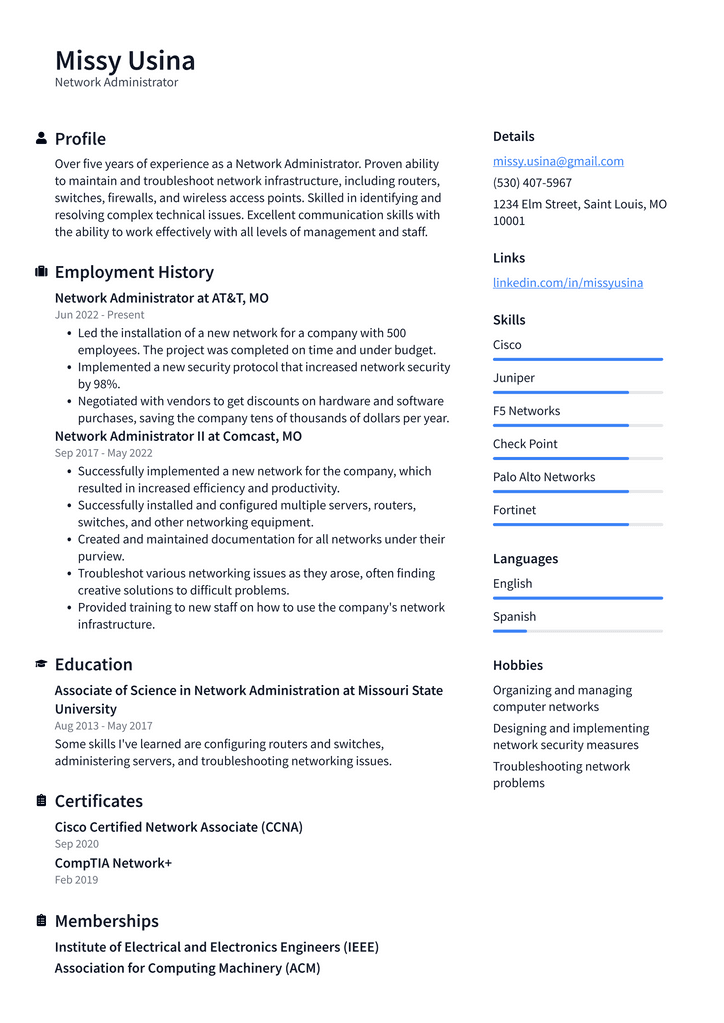
Download This Network Administrator Resume as PDF
Network Analyst Resume Example
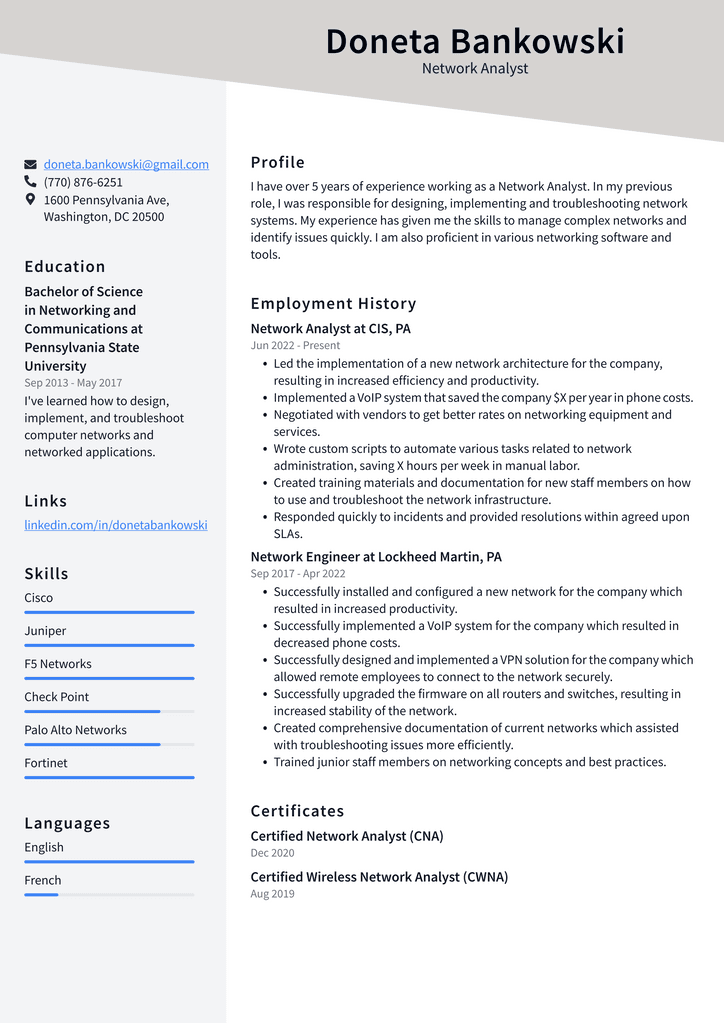
Download This Network Analyst Resume as PDF
Network Architect Resume Example
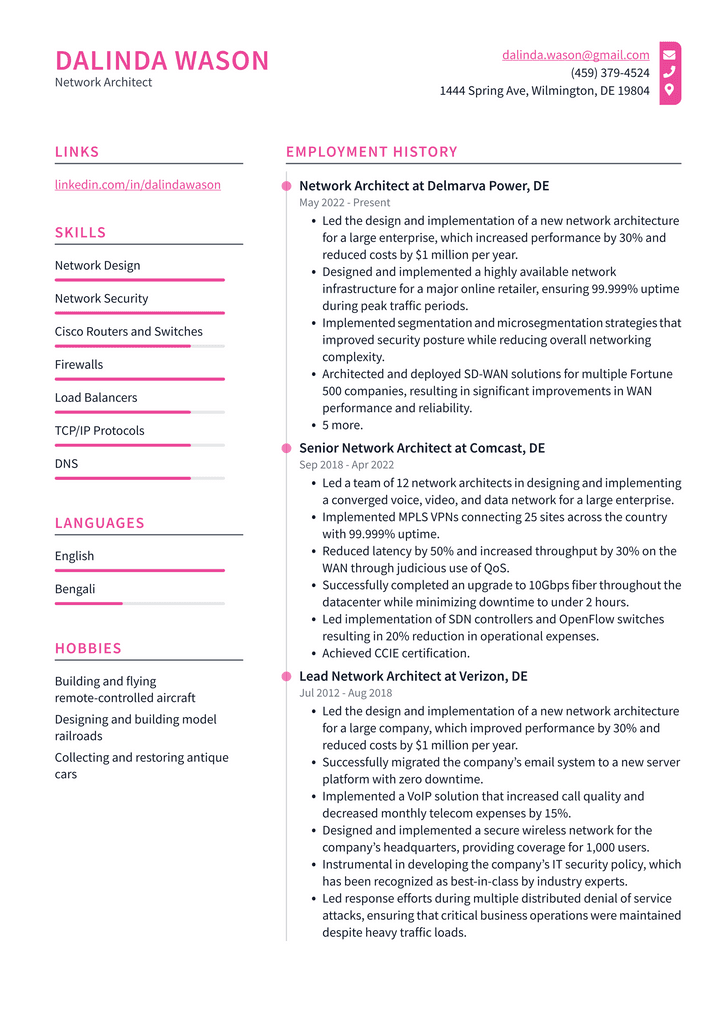
Download This Network Architect Resume as PDF
Network Technician Resume Example
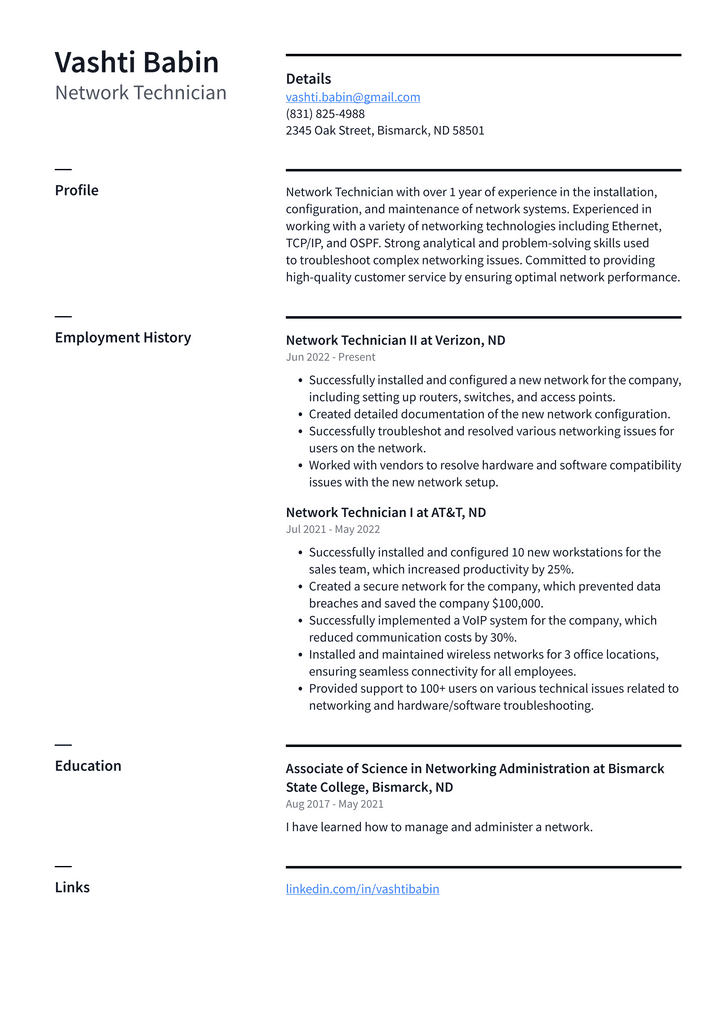
Download This Network Technician Resume as PDF
Systems Engineer Resume Example
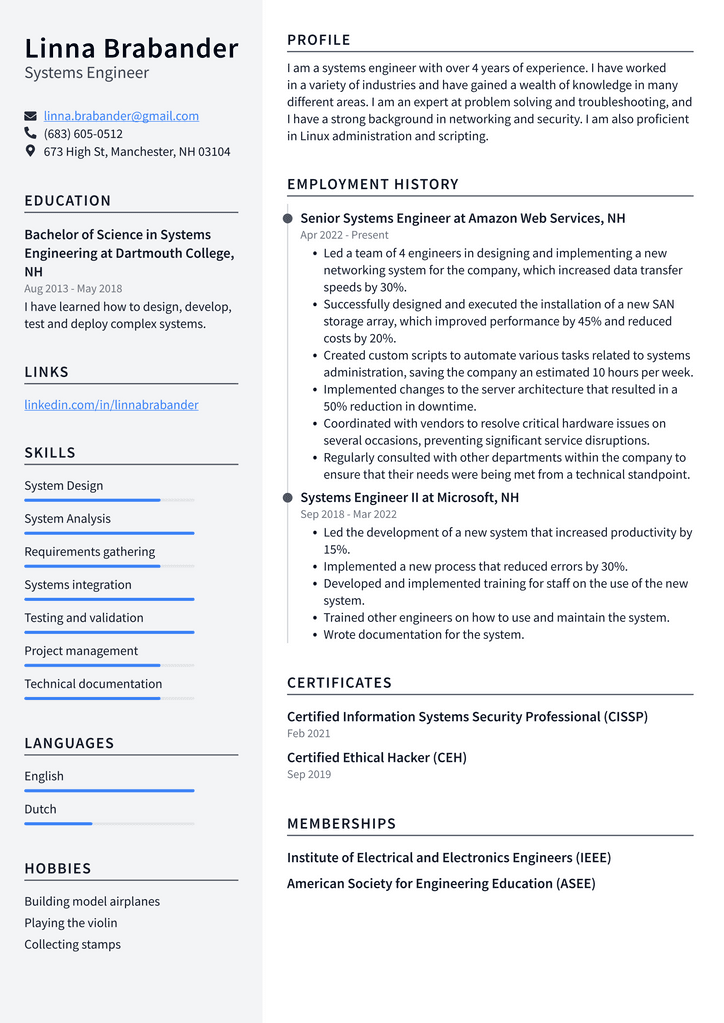
Download This Systems Engineer Resume as PDF
Network Specialist Resume Example
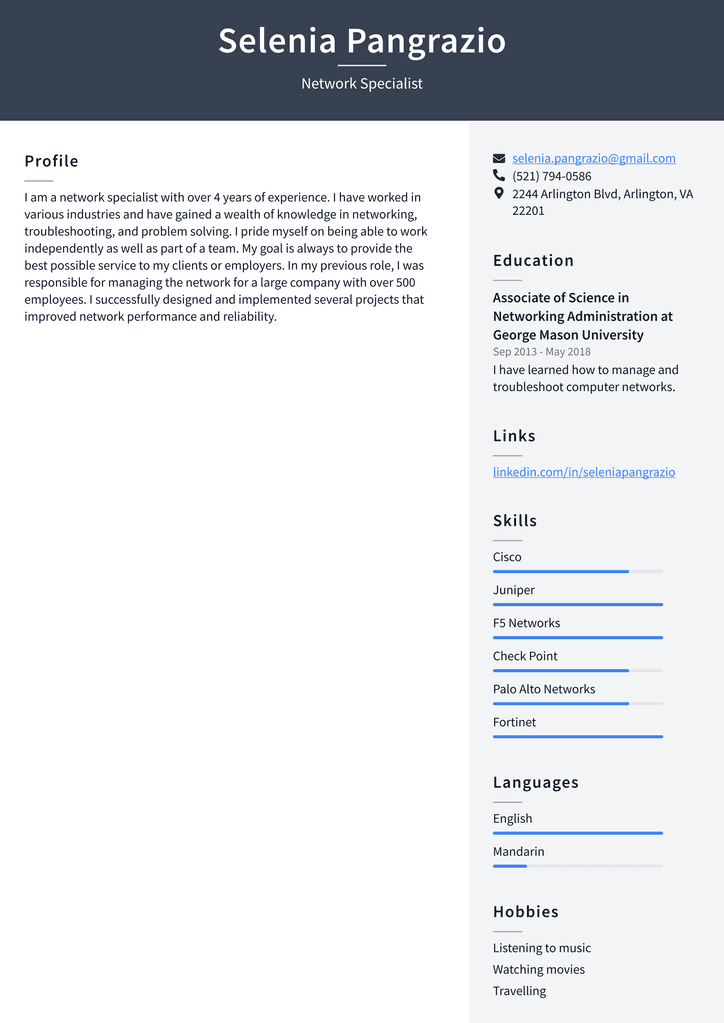
Download This Network Specialist Resume as PDF
Use a Consistent Format
To start with, you’ll need to decide what format to use for your resume. The two most common formats are the Chronological Resume and the Functional Resume. The Chronological Resume is the more traditional, listing your work experience in reverse chronological order. Using a chronological resume is typically best if you’ve been in the same field for several years. A Functional Resume is used if you’ve changed lots or switched careers; it highlights your skills and experience without getting into specific dates and job titles. Regardless of your chosen format, ensure your resume uses a consistent structure throughout. For example, ensure it follows the same order on every page and uses the same typeface and size for headings and text. One way to ensure consistency is to use a resume builder that allows you to save your progress as you go along. It’ll ensure your resume is consistent and formatted correctly from start to finish.
Add Keywords
In addition to ensuring your resume is consistent, you should also take the time to add keywords and phrases to each section. Keywords are terms that employers use when posting job listings to describe the type of person they’re looking for. They’re typically technical terms related to the job or industry you’re applying for. For example, if you’re applying for a network engineering job, some of the keywords you should include in your resume include “networking engineer,” “network design,” “routing protocols,” and “switching fabrics.” Which keywords you choose will depend on the job you’re applying for. There are a few ways to incorporate keywords into your resume. You can either add them to the actual job titles listed on your resume or add them to the job responsibilities section. Adding them to both teams will help ensure your resume is as keyword-rich as possible.
List Your Professional Accomplishments
Another essential part of your resume is listing your professional accomplishments. This is your chance to highlight the projects you’ve worked on and the skills you’ve developed throughout your career. You’ll want to decide which accomplishments are most relevant to the job you’re applying for. For example, suppose you’re applying for a network engineering job. In that case, you might want to list actions such as designing a data center network, implementing a cloud network, or designing a network for virtual machines. It’s essential to make sure you have accomplishments for every job listed on your resume. If you’ve worked in the same position for a long time, you might not have many accomplishments to list. If that’s the case, consider switching to a different field.
Mentioning Past Responsibilities
Another essential part of your resume is listing past responsibilities. This is your chance to highlight the projects you’ve worked on and the skills you’ve developed throughout your career. You’ll want to decide which responsibilities are most relevant to the job you’re applying for. For example, suppose you’re applying for a network engineering job. In that case, you might want to list responsibilities such as designing a data center network, implementing a cloud network, or designing a network for virtual machines. It’s essential to make sure you have responsibilities for every job listed on your resume. If you’ve worked in the same position for a long time, you might not have many responsibilities to list. If that’s the case, consider switching to a different field.
Networking Events and Conferences
While it’s not essential to include everything you’ve done on your resume, you do want to ensure you include any networking events and conferences you’ve attended. This is because networking events can be essential to your job search. Networking events and conferences are a great way to meet potential employers and get your name out there. In addition, it’s a chance to make connections, exchange business cards, and make new friends. You can mention any networking events you’ve attended in your resume’s “Education” section.
Summing up
When creating your resume, it’s important to remember that quality is more important than quantity. Although it’s tempting to try to fit as much information as possible, each resume should be tailored to a specific job. It would help if you also kept in mind that your resume is only one part of your job search. It’s important to do plenty of research and prepare for interviews. Your resume should highlight your skills and experience, but it should also be short. Make sure you don’t include unnecessary information and keep your resume to one page at most.